Butt Lift in Cape Town
Search and Compare the Best Clinics and Doctors at the Lowest Prices for Butt Lift in Cape Town

Find the best clinics for Butt Lift in Cape Town
No pricing info available
Egypt offers the best prices Worldwide
Price: $ 600
Dr Dawid Potgieter, located in Syfred Douglas St, Cape Town, South Africa offers patients Butt Lift procedures among its total of 90 available procedures, across 1 different specialties. Currently, there's no pricing information for Butt Lift procedures at Dr Dawid Potgieter, as all prices are available on request only. All procedures and treatments are undertaken by the lead specialist at the Hospital, and they have multiple recognized accreditations, including: HPCSA - Health Professions Council of South AfricaDepartment of Health, Western CapeFCS(SA) - Fellowship of the College of Surgeons of South Africa
- Home
- South Africa
- Cape Town
Compare Before & After Photos of _procedure_photos.phpButt Lift


Front view


Half-side view
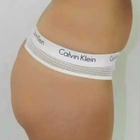

Full-side view
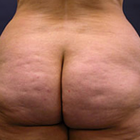
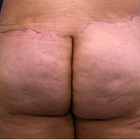
Front view
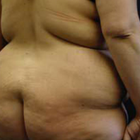
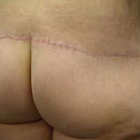
Front view
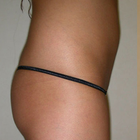

Half-side view

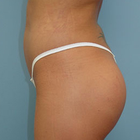
Half-side view
WHY US?
At Medijump, we're making medical easy. You can search, compare, discuss, and book your medical all in one place. We open the door to the best medical providers worldwide, saving you time and energy along the way, and it's all for FREE, no hidden fees, and no price markups guaranteed. So what are you waiting for?

Free

Best Price

Widest Selection

Risk-Free
What you need to know about Butt Lift in Cape Town
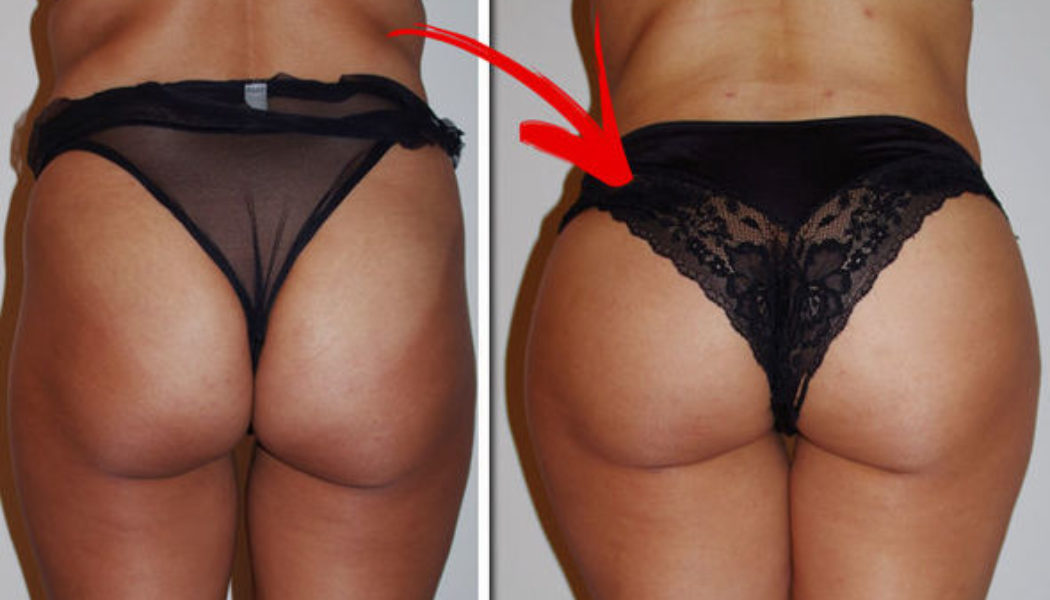
Before you undergo butt lift surgery, you may have loose, saggy, and droopy buttocks making you look and feel older than your age. With butt lift surgery, you can get more rounded and toned buttocks since it reshapes your body contour, making you look younger than your age.
The Butt lift is a surgical procedure to remove unwanted fat or loose skin from the buttocks in order to help reshape them. Implants and Liposuction are often involved and incisions using a cannula can be applied to the crease of the buttocks so there is no visibility of scarring. Butt Lifts are common among those who have lost lots of weight and consequently, the shape of their buttocks has changed. It may be performed as part of a Tummy Tuck (belt lipectomy) or lower body lift to contour the buttocks, groin, thighs, and abdomen. (Another option is to have a Brazilian Butt Lift).
A buttock lift alone won't add any volume to the buttocks. But sometimes, a buttock lift is combined with an augmentation procedure to alter the shape or size of the buttocks with implants or fat grafts. By removing excess skin and fat from your buttocks, a buttock lift can give you a more toned appearance.
What is the cost of Butt Lift in Cape Town?
When estimating the price of a Butt Lift in Cape Town, it's vital to acknowledge that the outlay incorporates numerous diverse elements. Initially, the competencies and reputation of the surgeon executing the process have a significant impact on the determination of the cost. Surgeons who are highly skilled and have an excellent reputation often demand higher fees for their proficiency. The surgeon's expertise directly influences the procedure's success and safety, making it a substantial part of the overall expense.
Besides the fee of the surgeon, the expenditure of the medical facility, costs of anesthesia, and clinical tests contribute significantly to the overall expense. These costs can fluctuate dramatically based on the procedure's intricacy and the location where the operation is taking place. Also worthy of consideration is the expense associated with preoperative lab work, post-operative care, and any necessary medication or medical supplies needed during the recovery phase.
What does a Butt Lift Procedure Involve?
Butt lift is most often carried out under general anesthesia. An incision is applied along your lower back from one butt to the other. The excessive skin and adipose tissue are removed through this incision lifting your butts up. The rest of the fat is redistributed and the skin is tightened. Incisions are stitched and surgical tapes are used to provide additional support. Bandages are applied to the wound. Drainage tubes are inserted to remove excess fluid and blood.
Should you get a Butt Lift?
Butt lifts work by removing excess skin and adipose tissue from the site and repositioning the leftover skin and adipocytes. Redistribution of fat and skin changes the contour of your buttocks, making them no longer appear saggy and droopy. Also, it should not be confused with Brazilian Butt Lift which is an entirely different procedure.
Not everyone is a good candidate for butt lift surgery. Discuss your medical history with MyMediTravel, any prescription drugs you are taking, the desired results you hope for, the pros and cons of the surgery, cost, recovery time, risks, success rate or any other query which comes in your mind regarding this procedure.
You might consider a buttock lift if you:
- Have lost a significant amount of weight and your weight has been stable for at least 6 to 12 months.
- are overweight and haven't been able to lose a significant amount of weight through physical activity and changes in your diet.
- Have a normal weight, but want a dramatic improvement in the appearance of your lower body.
- Have a normal weight, but your skin won't contract after liposuction due to poor elasticity related to aging.
How Long Should I Stay in Cape Town for a Butt Lift Procedure?
Butt lift is a 2-5 hours long surgery and will require at least 1-2 nights stay in the hospital, although in some cases you can be discharged on the same day. Even after being discharged, you have to stay in Cape Town for at least 10-14 days for follow-ups. During this period, your health is strictly monitored, you are given medicines to help you with pain and to prevent infections. Stitches are removed after 7-10 days. If everything is fine during this time, you are free to travel home.
What's the Recovery Time for Butt Lift Procedures in Cape Town?
In total, 4-6 weeks of recovery time is required before getting back to your normal routine, so avoid excessive and unnecessary activities during this period. There will be bruising and swelling around the operated area which subsides gradually after a few days. You can start office work 10 days after post-op if your job does not require long periods of sitting time - if it does, just be sure to move around as much as possible.
The recovery time can vary according to your health, environment, and daily routine. You can start driving after 4-6 weeks but do not travel long distances as it will require you to sit for too long. Scars take much longer to fade away. In 4-6 months, you should expect to have fully recovered.
What sort of Aftercare is Required for Butt Lift Procedures in Cape Town?
The following are some points which should be considered for your aftercare:
- Quit smoking and drinking because tobacco and alcohol slow down blood circulation hence slowing down your recovery.
- Avoid sitting for long periods for at least a week after the procedure.
- Avoid such positions which can put a strain on your scars. It can re-open your wound.
- Change your dressing regularly to avoid infection.
- Take prescribed pain killers and antibiotics to relieve pain and prevent infection.
- Wear some supporting garments for the early few weeks.
- Use scar cream to massage your scars. It will speed up their fading.
- Do not lift children and heavy objects.
- Avoid climbing up the stairs.
- Avoid exercise, gym, swimming, and other strenuous activities for several weeks.
- Abstain from sexual activity until allowed by your doctor.
- Start taking small steps the next day after going through the surgery to prevent blood clot formation.
What's the Success Rate of Butt Lift Procedures in Cape Town?
Butt lift is a highly successful and long-lasting procedure. An ideal weight should be maintained to keep the results of your surgery consistent. It is found to be far more successful than the Brazilian butt lift surgery, which has lead to patient deaths - unlike the Butt Lift surgery, which has not recorded any fatalities. The vast majority of patients are extremely happy with not only the results of the procedure but with the entire process leading up to and following the surgery.
Are there Alternatives to Butt Lift Procedures in Cape Town?
The operation should never be the foremost option and consider all other options first. Following are some non-surgical alternatives to butt lift surgery:
- Fillers: these are getting a lot of fame these days. Fillers such as Restylane, Sculptra, etc. are injected into your buttocks, making them look plump and lifted without surgery. They induce collagen production in your buttocks. Sculptra is found to be most effective for this purpose. It is advantageous as it has no downtime.
- Hydrogel buttock shots: hydrogel injections give your butt a rounded contour along with a lift. But they are not usually recommended.
- Liposuction: in this method, adipocytes are removed from your butts through injections to give them a more toned appearance. This fat can be injected at other places of your body if required.
- Exercise: some exercises, such as squats will help to change the shape of your butts, tighten them, and lift them up without surgery.
What Should You Expect Before and After the Procedure
Prior to the Butt Lift at Cape Town, be prepared for a comprehensive consultation phase. The medical expert will compile an exhaustive medical history, carry out a physical check-up, and converse about your aspirations and anticipations related to the procedure. Transparency regarding your health status and expectations during these consultations is of utmost importance. Some lab tests and medical imaging may also be necessary to examine your general health and determine your eligibility for the procedure. Subject to your health conditions and personal circumstances, guidelines for the pre-procedure phase will be communicated to you. This might involve guidelines regarding food intake, hydration, adjustments in medications, and consumption of substances like tobacco and alcohol.
Another critical element before the procedure is mental readiness. Naturally, feelings of worry or apprehension may arise before the procedure. Engaging in open and candid discussions with your medical expert regarding your apprehensions and expectations can help mitigate such feelings. Instructions about the logistics on the day of the procedure, such as the time to report at the clinic, appropriate attire, and arrangements for travel, will also be shared with you.
Upon completion of the Butt Lift, your condition will be closely observed in a post-operative area until the effects of anesthesia subside. Feeling some discomfort, experiencing swelling, and noticing bruising after the procedure is quite normal. Medications for managing pain and reducing swelling, as well as preventing infection, will be administered. Essential post-procedure care guidelines will be provided to you, which should be strictly adhered to ensure a seamless recovery process. These guidelines usually include instructions for wound care, medication routines, restrictions on activities, and what symptoms of complications to be vigilant about.
What are Potential Risks of Butt Lift?
Just like any operative process, Butt Lift also has inherent risks involved. The degree of potential risks can drastically differ from person to person based on their health conditions, techniques employed during the procedure, and the expertise of the surgeon. Usual risks linked to this procedure encompass adverse reactions to anesthesia, bleeding, infections, and variations in skin feeling. It is crucial to understand that the occurrence of such risks is generally low, and a majority can be lessened by adhering to the post-operative guidelines given by the healthcare professional. For instance, prevention of infection can be achieved through maintaining suitable post-operative wound hygiene, whereas the adverse effects of anesthesia can be minimized through a detailed discussion of your past medical records with your healthcare professional ahead of the surgery.
Although less usual, more critical complications can include a situation such as a fat embolism, which is the blockage of a blood vessel due to a piece of fat breaking away, affecting cardiac activity or leading to a pulmonary embolism. Asymmetry could also occur, where one buttock varies in size or form than the other. However, this is typically associated with the technique used and pre-existing body conditions rather than a specific risk associated with the procedure. If dissatisfaction arises with the aesthetic result, another surgical intervention might be necessary.
Whilst the information presented here has been accurately sourced and verified by a medical professional for its accuracy, it is still advised to consult with your doctor before pursuing a medical treatment at one of the listed medical providers
No Time?
Tell us what you're looking for and we'll reachout to the top clinics all at once
Enquire Now

Popular Procedures in Cape Town
Prices Start From $113

Prices Start From $208

Prices Start From $931

Prices Start From $76

Recommended Medical Centers in Cape Town for Butt Lift

- Interpreter services
- Translation service
- Religious facilities
- Medical records transfer
- Medical travel insurance
- Health insurance coordination
- TV in the room
- Safe in the room
- Phone in the room
- Private rooms for patients available

- Interpreter services
- Translation service
- Religious facilities
- Medical records transfer
- Medical travel insurance
- Health insurance coordination
- TV in the room
- Safe in the room
- Phone in the room
- Private rooms for patients available

- Interpreter services
- Translation service
- Religious facilities
- Medical records transfer
- Medical travel insurance
- Health insurance coordination
- TV in the room
- Safe in the room
- Phone in the room
- Private rooms for patients available

- Interpreter services
- Translation service
- Religious facilities
- Medical records transfer
- Medical travel insurance
- Health insurance coordination
- TV in the room
- Safe in the room
- Phone in the room
- Private rooms for patients available

- Interpreter services
- Translation service
- Religious facilities
- Medical records transfer
- Medical travel insurance
- Health insurance coordination
- TV in the room
- Safe in the room
- Phone in the room
- Private rooms for patients available

- Interpreter services
- Translation service
- Religious facilities
- Medical records transfer
- Medical travel insurance
- Health insurance coordination
- TV in the room
- Safe in the room
- Phone in the room
- Private rooms for patients available

- Interpreter services
- Translation service
- Religious facilities
- Medical records transfer
- Medical travel insurance
- Health insurance coordination
- TV in the room
- Safe in the room
- Phone in the room
- Private rooms for patients available

- Interpreter services
- Translation service
- Religious facilities
- Medical records transfer
- Medical travel insurance
- Health insurance coordination
- TV in the room
- Safe in the room
- Phone in the room
- Private rooms for patients available

- Interpreter services
- Translation service
- Religious facilities
- Medical records transfer
- Medical travel insurance
- Health insurance coordination
- TV in the room
- Safe in the room
- Phone in the room
- Private rooms for patients available

- Interpreter services
- Translation service
- Religious facilities
- Medical records transfer
- Medical travel insurance
- Health insurance coordination
- TV in the room
- Safe in the room
- Phone in the room
- Private rooms for patients available
Butt Lift in and around Cape Town
About Cape Town
Cape Town is the legislative capital of South Africa and is also known as the Mother City. It is the oldest city in the country and home to the Parliament of South Africa and is a major destination for immigrants and expatriates, making it one of the most multicultural cities in the world. Located on the shore of Table Bay, the city is known for its harbor, natural setting, as well as famous attractions and many tourists, visit to enjoy Table Mountain and Cape Point.
Recently, tourists also come to the city for its medical tourism. Many groundbreaking procedures and medical research in South Africa, such as the world’s first penile transplant, have put Cape Town under the radar of medical tourists from all around the globe. Thanks to its world-class healthcare and world-renowned medical practitioners, more and more people now prefer Cape Town as their medical destination. The healthcare in the city is among the best on the African continent. Other reasons such as shorter waiting times for surgeries, state-of-the-art equipment, and affordable healthcare compared to Europe and the United States, and English-speaking doctors.
Popular Areas in Cape Town
Cape Town is a natural beauty that offers a wide range of things to do and see. From culture, food, art, to nature. Listed below are some of the more popular places in the city:
- Table Mountain is one of the New 7 Wonders of Nature and it is easy to see why. The iconic mountain makes an amazing backdrop to Cape Town. The level plateau is about 3 kilometers from side to side with remarkable cliffs on the edges. The peak offers an amazing view of the city. Tourists can choose to board the cable car or discover its beautiful nature by hiking.
- Cape of Good Hope is situated within the Table Mountain National Park. The area has a mix of bio-diversity and wonderful beauty that attracts thousands of tourists to visit. There are around 250 species of birds spotted in the area. Hiking and cycling through it is the best way to discover its true majesty. Tourists can picnic and birdwatch in isolated beaches.
- Kirstenbosch National Botanical Garden is one of the most incredible botanic gardens in the world. Nestled at the eastern foot of Table Mountain, it features a natural forest and fynbos flora and sprawls around 528 hectares. The garden displays a collection of diverse South African plants with seasonal festivals such as musical sunset concerts during summer and craft markets on the last Sunday of every month.
- Groot Constantia is the oldest wine-producing estate in South Africa, located in the suburb of Constantia. The estate consists of a museum, restaurants, tasting room, and cellars. The museum was built in Cape Dutch architecture style, further into the estate; tourists will find the free orientation center which provides an overview of Groot Constantia history. Tourists can also tour the original wine cellar, have a wine tasting, or a wine and chocolate pairing.
- Boulders Penguin Colony is located in Boulder Beach on the outskirts of Simon’s Town. The beach boasts fine white sand with pristine waters and endangered African penguin colonies. Tourists can set up camp, see the penguins up close, and even swim along with the magnificent aquatic birds. Observing the penguins socializing and playing in the waves is a perfect way to enjoy your travel in Cape Town.
Weather and Climate in Cape Town
Cape Town enjoys a warm Mediterranean climate. The summer is dry and warm, lasting from early December to March. The average maximum temperature during this season is around 26 °C, and the minimum is 16 °C. The Berg Wind that arrives from February to early March can make the city uncomfortably hot for a couple of weeks.
The winter starts in June and ends in August and the season is characterized by mild and wet weather. The city also experiences strong north-westerly winds during this season. The average temperature ranges between 8.5 °C at the lowest and 18 °C at the highest.
Getting Around in Cape Town
The primary airport that serves Cape Town is the Cape Town International Airport and it is the second busiest airport in South Africa and the fifth busiest in Africa. The airport serves direct domestic flights to major cities and several small centers in the country. It also connects the country with major cities in Africa, Europe, the Middle East, and Asia. It is the hub for South African Express as well as budget airlines such as Mango and FlySafair.
There are several types of taxis: the metered taxis, Rikkis Taxis, and minibus taxis. The metered taxis can be a little expensive but are usually comfortable. Tourists can order one via a phone call or from one of the city’s official taxi stands. Tourists should always choose reputable taxi companies such as Marine Taxi, Unicab, Excite, and SA Cab.
Rikkis Taxis are painted yellow and very popular and these taxis run on a fixed fare rather than metered, so they are a little more affordable than metered taxis and a good option if you are traveling on longer journeys. Other than the Rikkis Taxis, tourists can choose the minibus taxis which are perfect for adventurous foreign travelers. The minibus taxis can be found practically everywhere and are very cheap, however, you will need to know exactly where your destination is and tell the driver when to stop. Another travel option is the MyCiTi bus, a modernized and effective bus system.
Tourist Visas in Cape Town
There are more than 60 countries listed in the visa exemption agreements, which means the citizens of these countries can stay in South Africa for up to 90 days. Other countries not listed must obtain a valid visa to enter the country. A Medical Treatment Visa is available for medical tourists. Note that all visitors must hold a passport valid for at least 30 days after the expiration of their intended visit.
Additional Information
- Local Currency: South African Rand (ZAR) is the official currency and 1 USD converts to 14 ZAR.
- Money & Payments: Tourists can find ATMs almost everywhere around the city, but you should avoid ATMs in secluded places, especially at night. Credit cards are accepted in established restaurants, hotels, and shops. It is always better to carry some cash because smaller food places are cash-only. Tipping is expected here.
- Local Language: The most common languages in the city are English, Afrikaans, and Xhosa with Afrikaans as the most widely spoken home language.
- Local Culture and Religion: The population follows Christianity, Islam, Judaism, and several other religions.
- Public Holidays: There are 12 official public holidays in Cape Town, including New Year’s Day, Freedom Day, and Christmas.
Popular Searches
- Plastic Surgery in Thailand
- Dental Implants in Thailand
- Hair Transplant in Thailand
- Breast Augmentation Thailand
- Gastric Sleeve in Thailand
- Gender Reassignment Surgery in Thailand
- Laser Hair Removal in Bangkok
- Botox in Bangkok
- Dermatology in Bangkok
- Breast Augmentation in Bangkok
- Coolsculpting in Bangkok
- Veneers in Turkey
- Hair Transplant in Turkey
- Rhinoplasty in Turkey
- Stem Cell Therapy in Mexico
- Rhinoplasty in Mexico
- Liposuction in Mexico
- Coolsculpting in Tijuana
- Rhinoplasty in Korea
- Scar Removal in Korea
- Gastric Sleeve in Turkey
- Bone Marrow Transplant in India
- Invisalign in Malaysia
- Plastic Surgery in the Dominican Republic
- Tummy Tuck in the Dominican Republic
- Plastic and Cosmetic Surgery in Poland
- Rhinoplasty in Poland
- Hair Implant in Poland
- Dental Implants in Poland
- IVF in Turkey
